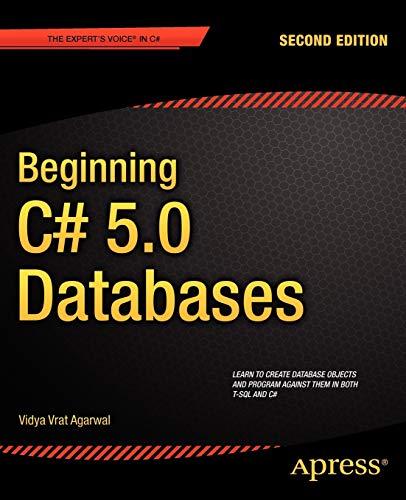Question
1) You save $100 and earn 7% (annual) interest. How much will you have total in one year? Group of answer choices 100 149 107
1)
You save $100 and earn 7% (annual) interest. How much will you have total in one year?
Group of answer choices
100
149
107
170
2)
You save $100 and earn 7% (annual) interest. How much will you have total after two years assuming you reinvest principal and interest?
Group of answer choices
100
114
114.49
107
3)
Tasha saves $500 at 7% (annual) for 5 years. Which is the correct setup for the problem?
Group of answer choices
$500(1 + .07*5)
($500 * 1.07)5
$500 * 5 * 1.07
$500(1+.07)5
4)
Which is better to receive: $1,000 in five years or $200 per year for five years in a row? Assume an interest rate greater than zero.
Group of answer choices
Id need to know the interest rate
$200 per year
$1,000 in the fifth year
They are the same
5)
An investment opportunity promises to pay you $1,000,000 in 10 years. Assuming you think the appropriate discount rate is 10%, how much would you pay for this investment?
Group of answer choices
$100,000
$385,543
$909,090
$2,593,742
6)
As the discount rate gets larger, what happens to the present value of a future payment?
Group of answer choices
They are unrelated
It gets smaller
It gets larger
It stays the same
7)
An investment opportunity promises to pay you $500,000 each year for two years. Assuming you think the appropriate discount rate is 10%, how much would you pay for this. The payments will come at the end of each year.
Group of answer choices
$1,000,000
$100,000
$867,768
$909,090
8)
And investment opportunity promises to pay you $500,000 each year for two years. Would you pay more if the payment is made at the beginning of each of the two years, or at the end of each of the two years?
Group of answer choices
It doesnt matter when the payments are made
Payments at the end of the year would be worth more
It would depend on the discount rate
Payments at the beginning of the year would be worth more
9)
Youre considering purchasing a small catering business. The financials give you a pretty good estimate of annual earnings. Which would be the more appropriate discount rate to use to estimate a purchase price?
Group of answer choices
The rate paid by a well-diversified portfolio of stocks
A low rate of interest, like 0.5%, because bank rates are very low
A reasonably high rate to account for the added risk of operating a business
10% always, because the math is easier
10)
Why do most lottery winners choose a lump sum instead of the annuity?
Group of answer choices
They want to rush out and buy lots of stuff
They can safely earn more than the implicit discount rate
Probably all of them, but mostly B
They assume the state will run out of money within 30 years
Step by Step Solution
There are 3 Steps involved in it
Step: 1

Get Instant Access to Expert-Tailored Solutions
See step-by-step solutions with expert insights and AI powered tools for academic success
Step: 2

Step: 3

Ace Your Homework with AI
Get the answers you need in no time with our AI-driven, step-by-step assistance
Get Started


